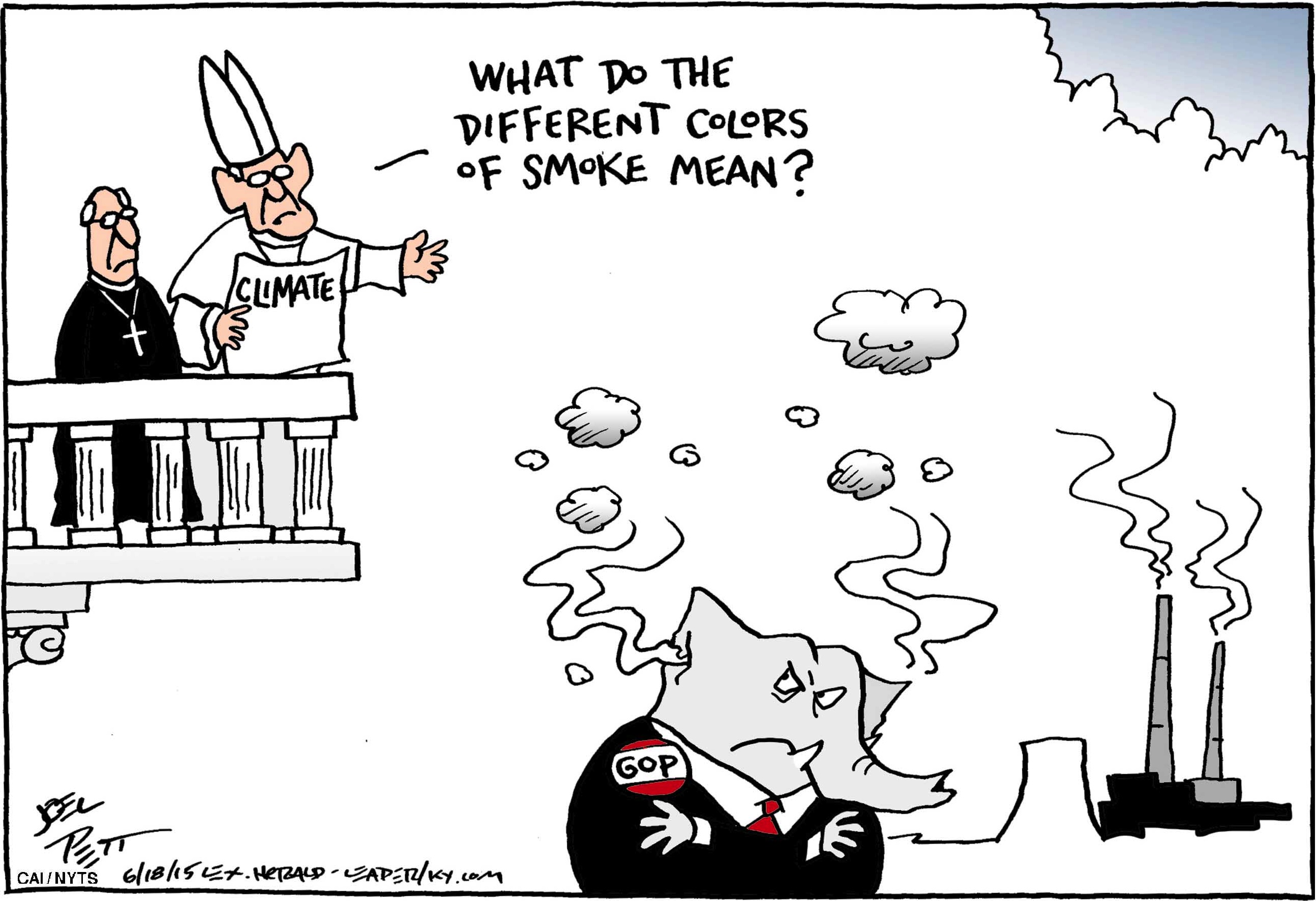Pope Francis's just-released encyclical on the environment sends a powerful message not just to the world's 1.2 billion Catholics, but to the rest of the global population as well. Firmly rooted in science, the teaching document — the most significant from the Vatican in over a decade — recognizes the need for urgent action, as the world confronts potentially catastrophic climate change.
In 2000, the scientists Paul Crutzen and Eugene Stoermer proposed that human activity, particularly in the developed world, was interfering at the planetary scale, with the fundamental forces of nature — the water, carbon, and nitrogen cycles, the ice sheets, biodiversity, the oceans and the forests. The changes were so profound, they suggested, that geologists in the future would see a clear break from the previous geological era, the Holocene, to a new one, which they called the Anthropocene.
Over the last 15 years, scientific evidence has reinforced the conclusion that human activity is fundamentally transforming the planet. The Vatican has already recognized this view explicitly, with the Pontifical Academy of Sciences referring to the Anthropocene in the proceedings of a meeting held in May 2014.



















With your current subscription plan you can comment on stories. However, before writing your first comment, please create a display name in the Profile section of your subscriber account page.